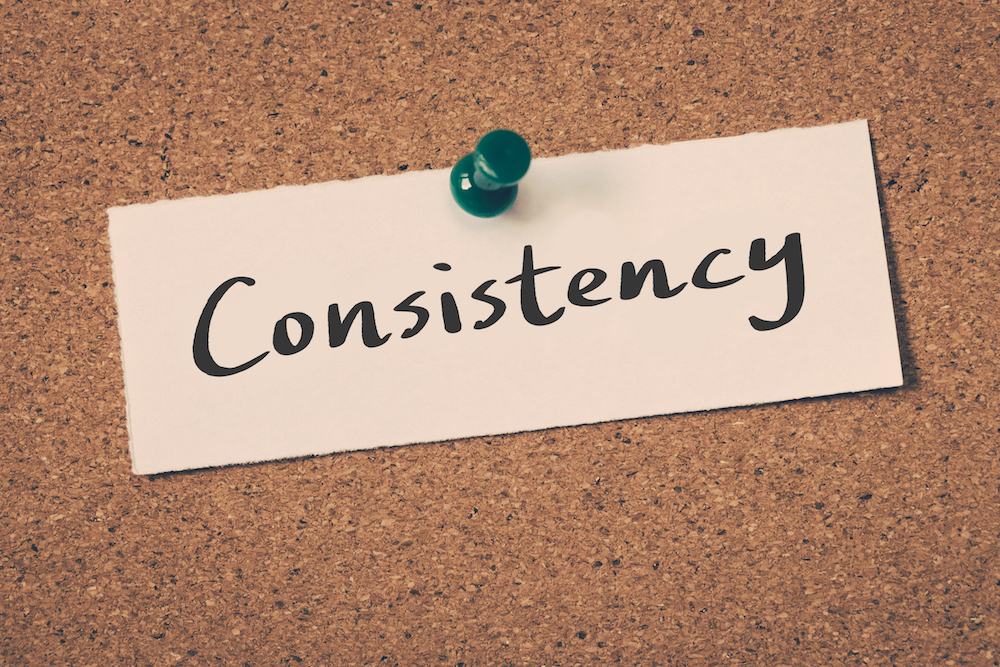Communicating a Consistent Artist Brand
This is a re-post of an article originally published a few years ago. If you are looking for music marketing, a music bio or other music business services please contact us – here if not keep reading below!

One of the most disturbing things I’ve learned through the process of working with artists to craft bios that, ideally, fully and compellingly capture the spirit of their music and the essence of them as unique individuals is that many of them – and I might even say most of them – have never truly asked a very important question: “Who am I?” And those that have asked that question are often coming up with an answer that is dead wrong … and then building their entire brand around the identity of an imaginary stranger they have created.
Of course, soul searching is not easy for anyone. Many people devote their entire lives pursuing philosophy and determining the reason for their existence and still come up short. And “Who am I?” is an especially bold, nerve-frazzling question for an artist, band or anyone in a creative field to ask, because the answer gets communicated through every recorded song, live performance, Instagram post, Facebook status message update, tweet, email, professional interaction with music industry professionals and personal interaction with fans. (No pressure!)
As an artist, you need to know what your unique brand/identity is and be able to express it in a confident, authentic and consistent voice in order to connect through your music, engage meaningfully with fans and have a successful, long-lasting career. Are you comfortable in your own artist skin? Here are five ideas to consider as you are developing a consistent artist brand, voice and identity.
Tell a story. “Storytelling” is a simultaneously over-hyped and under-utilized branding tool. In the world of business and branding, it is the way you focus the messages you send out around a central theme and create consistency. Your story gives people additional reasons beyond your music to invest in you emotionally and financially, which is why, as a musician, you need to have an interesting narrative that moves forward and grows with you as your career develops. The special story of your personal relationship to music and who you are artistically is concisely summed up by your mission statement, which you will be communicating through every aspect of your website, press pack, social media pages and other marketing pieces. (If you need a refresher course on the topic of your mission statement, revisit point #1 of the article “5 Tips about Writing Your Own Band Bio.”)
While it is certainly important that your story have a plot, even more important is that it has real conflict and tension and engages fans and potential fans emotionally. That doesn’t mean your story must be wrought with gripping drama, have a clear beginning, middle or end, or feature an arch nemesis (and if it does, you probably want to leave him/her out of your self-promotional process). But it should have a theme. For example, did you discover you wanted to become a professional musician while you were struggling through medical school/law school/clown college? Tap into that. How does your music reflect that moment of change, and how did that turning point in your story shape your journey as an artist? People make their biggest decisions with their heart (or “gut,” or whatever you’d like to call it) rather than with their head, so when you tap into others’ emotions with your story, you compel them to not only learn more about you but also spread the word to others about your music. It goes without saying that your story also needs to be authentic and credible, as people are more likely to respond to you when they feel you come from an ethical and honest place.
If the concept of telling your story terrifies you, the good news is, if you write and perform music, you are already a storyteller. Narrative is the way all of us make sense of the world around us and our experiences so we can create memories that piece together the diverse and ongoing events of our lives; so, even if you were not a “creator,” telling stories is innate to the human experience. Relax, let your story flow and you will unlock a huge opportunity to connect with your audience on a very deep level.
Keep all your media and marketing materials consistent. When putting together official websites, album covers, Facebook fan pages and press packs, many artists let their creativity take over and forget that one of the most important aspects of branding and voice is consistency. Throwing every idea you ever have and every photo you ever take out into the universe without considering how it will contribute to your career aspirations and business plan will just cause mass confusion. Sometimes consistency can feel repetitive and constrictive, especially when you’re repeating the same words, images, color schemes and ideas over and over again. But it is necessary. Business experts will tell you over and over again how in order to be perceived as professional, your Facebook fan page needs to match your website, which needs to match your Twitter account, ReverbNation or SoundCloud page or anywhere else you’re presenting yourself and your music online. And this is absolutely true.
But why? The way fans and others experience you needs to be consistent in order for them to understand who you are and feel comfortable in the space you’re creating for them. Whether fans are visiting your official website or holding your physical album in their hands, each page, piece of artwork and blurb needs to be clearly-identifiable as yours, with a specific look, feel and style that ties in directly to your identity and speaks to them in a way that only you can. You need to use the same fonts, colors, images, backgrounds, page layout and voice in everything you put out into the world, even newsletters, email and promotional posters for your gigs. When fans feel comfortable in the space you’ve created, they will be more likely to click through the pages of your website, listen to your music and watch your videos, without you having to pressure them.
Do you want to test out what you have? Gather up all your artist collateral – your press pack, website, album(s), Facebook page, Twitter profile, anything and everything – and ask yourself some questions: Are the visual design elements – colors, fonts, photos, images, etc. – the same across platforms and media? Is your mission statement clearly visible and the same in all places? Which messages and values is it conveying about your identity as an artist? Are these messages consistent with the type of artist you want to be? If you looked at all your artist materials, knowing nothing about yourself, would you be able to describe your fans? Does what you talk about on social media align with what you hope to communicate through your music and your own personal values?
Listen to feedback from your fans … but NEVER betray your authentic self. You have likely (at least in part) chosen a career as a performer because you want to entertain and move others through your music. Thus, it’s very hard to ask that “Who am I?” question without considering who others want you to be; a portion of your brand has to be shaped by your fans, because your growth as an artist partially depends on them.
I often hear artists say that they don’t understand or even like the type of people that like their music. While certainly we, as musicians sometimes have to embrace fans in unexpected places and follow the saying “beggars can’t be choosers” in order to make a living at our craft, we cannot abandon our core identity. If you don’t believe in what you are presenting – and if it doesn’t square with your principles and the type of music that truly inspires you – you’re not going to enjoy your job. If you don’t understand or openly dislike your fans – who are ready, willing and able to love you – your disdain will come through in your music, your marketing materials and your professional and personal interactions, and no one – not even those fans you don’t like – will want to invest energy or money in you. (And if any of what I have just said rings true to you, it’s time to take a step back and either make an effort to get to know and appreciate your fans or rethink your passion for music.)
So, certainly, listen to your fans and create music, products and experiences that speak directly to them. But always stay true to your mission statement and be the authentic “You”-brand you that you claim to be.
Silence the noise. You hear some version of this statement all the time: “You have to stand out above the noise in order to get your music heard.” But most people don’t understand what this statement really means and attempt to sing more loudly and more often than everyone else, believing that is what will get them ahead and set them apart from the hordes of talented professional musicians vying for attention in an intensely-packed market. They update their status messages 20 times per day, record a new song every week, send out lengthy newsletters, book three shows per week and indiscriminately email everyone they think might listen to them, cover their story or advance their careers.
While staying active and diligently working hard at your craft through practice, recording and live shows are certainly essential to developing as an artist, standing out and rising above the din is really more about subtraction than addition. Too much noise prevents people from hearing your true voice. We live in an environment where, thanks to the magic of technology, we are always being bombarded by information, even when we are in the comfort of our own homes. Remember that if you feel frantic and overwhelmed as you try to scream above all the other bands out there, your audience is experiencing the same – or even greater – system overload. Pare down your interactions, the language of your emails, the music and videos you release and get really selective about your communication; focus on writing and releasing the best and brightest songs and using the most succinct and meaningful language to promote yourself and communicate to fans. And remember to remove the noise from your own life as well every once in a while by seeking out some solitude, so you can hear your own thoughts, the sound of your own voice and plan your next move.
Know how and when to promote yourself. You may have an amazing band with even more amazing songs. But if no one knows about it, you are not going to have much success moving your career forward. A lot of musicians put their songs up online, sit back and wait for that glorious ‘90s-style moment of “discovery” when an A&R rep or a label head will appear out of the darkness of a tiny bar or coffee shop, tell them they are the future of music and save them from the stormy sea of promotion and business management, finally freeing up all their time to write and perform.
That kind of help is not coming. And even when some help comes, you have to educate yourself about PR and marketing so you can be your own life raft and reach out to others about booking shows, buying your music or becoming a champion for your band. Taking control of your own voice and becoming skilful at self promotion is the only way to build a sustainable career, even if you eventually seek or get support from outside forces. Remember that everything you do to promote yourself should stem from your mission statement (which of course stems from your relationship to your music), so get clear on that first. From there, you can steadily build out the other elements of your press kit, such as your bios, testimonials and press clips.
There is a very fine line between bragging and promoting, and you have to learn how to walk along it. Just remember, it is always better to push your brand than not. You will learn – often through trial, error and the responses you get – when you have gone too far … or not far enough.
Developing your own voice and brand as an artist is an on-going process that will continue for as long as you make music. But if you are fully present in each moment and aspect of your career, it will emerge naturally and help you navigate each challenge and triumph.
Julia L. Rogers is the Editor in Chief of MusicConsultant.com. She is a classically-trained musician, published author, journalist and a contributing music writer at Bitch magazine. She also writes about business strategy, social media and emerging technology for corporate clients, including The Huffington Post, Entrepreneur and American Express. She was previously a grant writer and development/marketing strategist for several New York City-based non-profit Arts organizations and has written business development materials and produced online media for a variety of small technology companies. As a songwriter, cellist, bassist, singer and pianist, Julia plays out regularly in New York City in various original projects. Julia continues to take risks that help her clients and partners passionately re-commit to their visions and capture their on-going stories with honest, sharp and engaging narratives. She has been working with MusicConsultant.com since 2009.






![badge[1]](https://musicconsultant.com/site/uploads/2014/11/badge11.png)